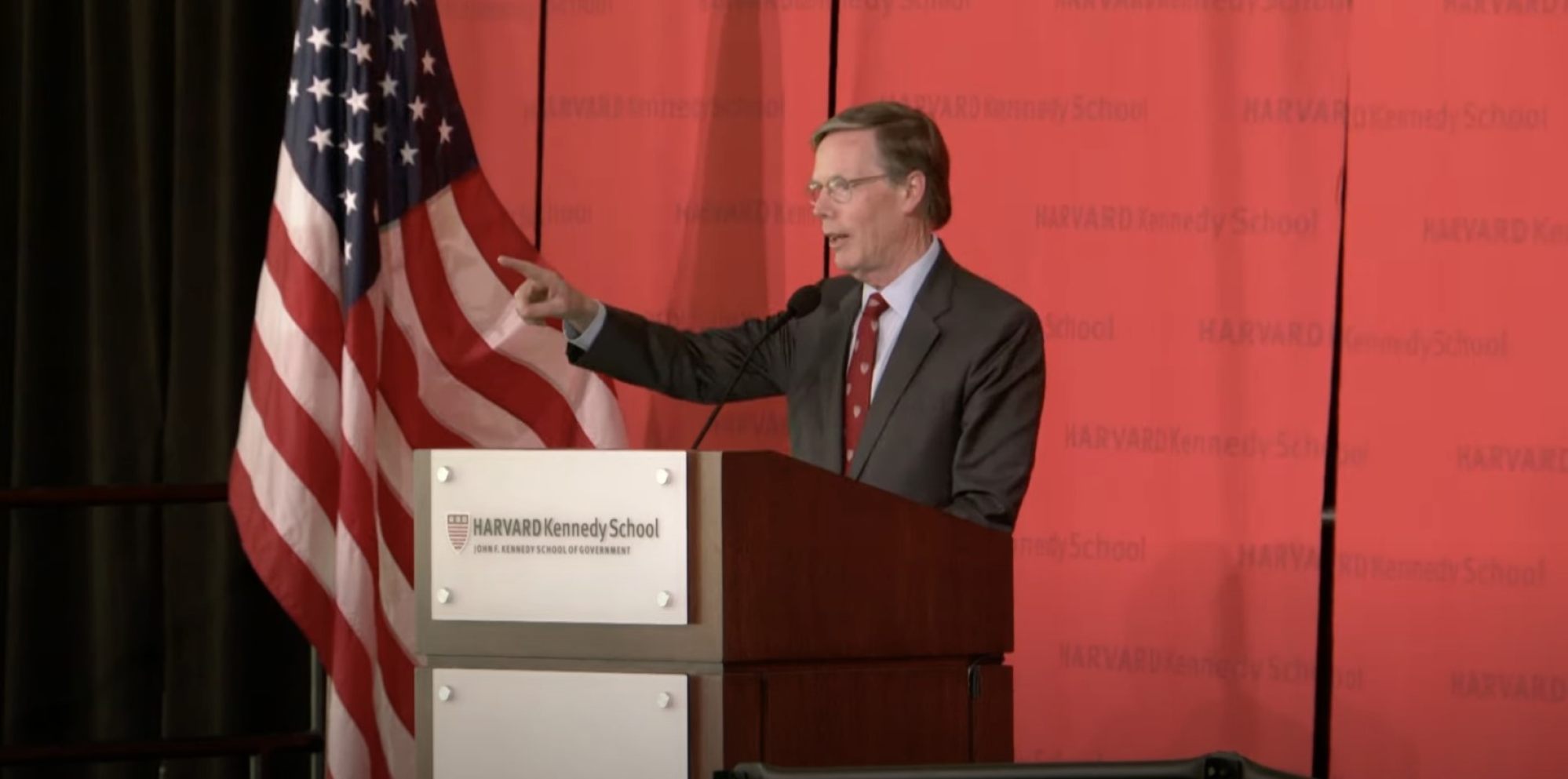In a stark warning to Harvard graduates on Wednesday, US ambassador to China Nicholas Burns described democracy as “under assault” by authoritarian countries, while emphasising a need for society to embrace the art of respectful disagreement.
Burns delivered the graduation address to 659 graduates of Harvard University’s John F. Kennedy School of Government, where he taught for 13 years before being appointed his current role in 2021.

In addition, Burns in his 37-minute address urged graduates representing 87 countries to learn “how to disagree”.
“Find the humanity in the person that you’re arguing with, debating with, maybe shouting at,” the diplomat said.
Citing a quote by former US president John Kennedy uttered at the height of the Cold War, Burns stressed the importance of expanding the space for diverse voices.
“Here’s what he said about what happens when you demonise someone … ‘For in the final analysis, our most basic common link is that we all inhabit this small planet. We all breathe the same air. We all cherish our children’s future. And we are all mortal.’”
Burns invoked some of those challenges, such as managing the rapid advancement of emerging technology, while others went unmentioned.
Burns on Wednesday limited his direct references to China, yet chose to acknowledge the Kennedy School’s 25 Chinese graduates this year.
“Thank you for being 25 of the 300,000 Chinese students in the United States. You’re very welcome in our country,” he said.
Douglas Elmendorf, dean of Harvard Kennedy School, noted Burns’s commitment to promoting student and academic exchange between the two countries, encouragement that comes amid State Department travel warnings and reduced US government funding for Americans studying there.
In a speech last Thursday, Xie Feng, China’s ambassador to the US, promoted the Chinese government’s new Young Envoys Scholarship, saying it had already supported waves of visits by American high-school and university students.
“The goodwill between our peoples should not be hijacked by the so-called political correctness,” Xie said. “Nor should the atmosphere of people-to-people exchanges be poisoned by the China-bashing rhetoric.”

